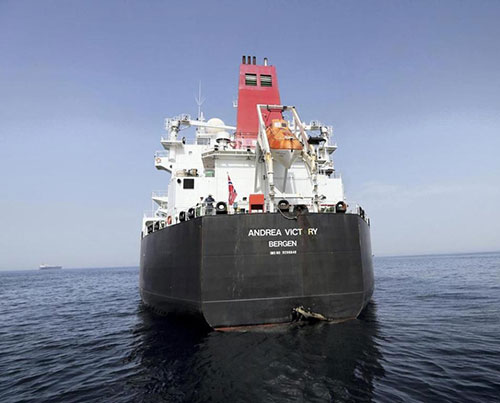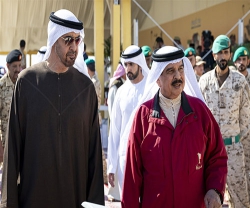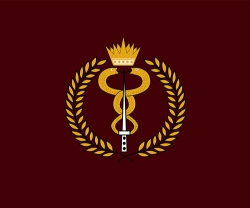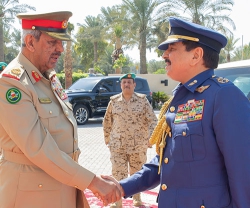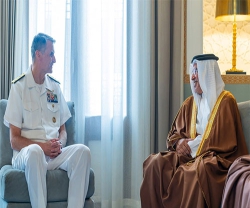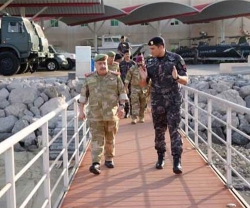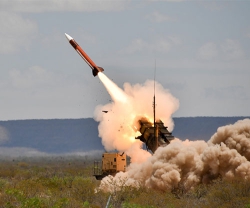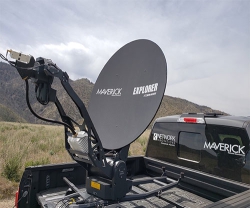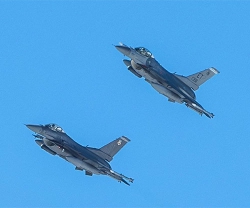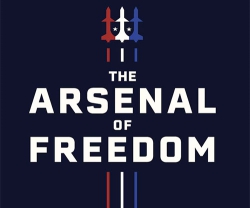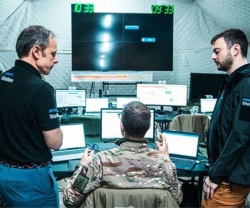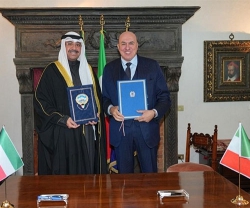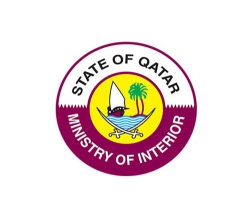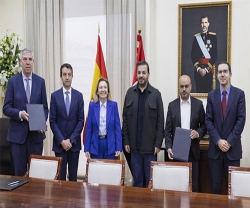The Gulf Cooperation Council (GCC) states began “enhanced security patrols” in the international waters of the Arabian Gulf on Saturday, the Bahrain based US Navy’s Fifth Fleet said.
GCC members were “specifically increasing communication and co-ordination with each other in support of regional naval co-operation and maritime security operations in the Arabian Gulf”, the fleet, based in Bahrain, said on Sunday.
Earlier, the Chief-of-Staff of Bahrain Defense Force (BDF) Lieutenant General Dhiab bin Saqr Al Nuaimi received on Friday the US Naval Forces Central Command and Fifth Fleet Commander Vice Admiral James Malloy and discussed with him bilateral military cooperation. The meeting was attended by BDF senior officers, according to Bahrain News Agency (BNA).
The US announcement came hours after Saudi Arabia announced an emergency summit of Gulf and Arab leaders scheduled for May 30 to discuss recent attacks on Saudi oil installations and commercial vessels off the coast of the UAE.
The Kingdom’s Foreign Ministry made the announcement on Twitter in the early hours of Sunday. Also on Sunday, the Saudi Media Ministry said Crown Prince Mohammed bin Salman had discussed regional developments and the need to strengthen security in a call to US Secretary of State Mike Pompeo.
Adel Al Jubeir, the Minister of State for Foreign Affairs, spoke a week after four oil tankers, two of them Saudi, were hit in an act of sabotage off the coast of the UAE. The other two vessels in the attack were registered in the UAE and Norway. Days after Iran-backed Yemeni rebels claimed a drone attack on a Saudi oil pipeline and two pumping stations.
“The kingdom of Saudi Arabia does not want war in the region and does not strive for that. However, if the other side chooses war the Kingdom will fight this with all force and determination, and it will defend itself, its citizens and interests,” Al Jubeir said.
The attacks took place at a time of increased US-Iranian tension after Washington’s decision this month to try to cut Tehran’s oil exports to zero and to increase its military presence in the Gulf in response to what it called a “credible threat” from Iran and its proxies.
The US last week withdrew non-essential staff from its Embassy in Baghdad claiming security concerns and the oil firm Exxon Mobil removed its foreign staff from southern Iraq.
The Iraqi Oil Minister said Exxon’s action was unacceptable and based on political considerations rather security concerns.
Iran’s Foreign Minister dismissed the possibility of war in the region.
“There will be no war because neither do we want a war, nor has anyone the idea or illusion it can confront Iran in the region,” Javad Zarif told Iran’s IRNA state news agency in Beijing.
Meanwhile, Iranian President Hassan Rouhani said on Saturday that Tehran would not be bullied into negotiating, IRNA reported.
“The US claim that it is forcing us to the negotiating table is worthless. We are for logic, negotiation and dialogue but we will never surrender to anyone who intends to bully us,” Rouhani said.
Battered by US sanctions and an ailing economy, Iran’s Rial has fallen to 148,000 to the American dollar. That compared with 32,000 in 2015 when international sanctions were lifted following a deal to curb its nuclear program.
Nationwide, the unemployment rate is 12%. For youth it is even higher, with a quarter of all young people unemployed, Iran's statistic centre says.

